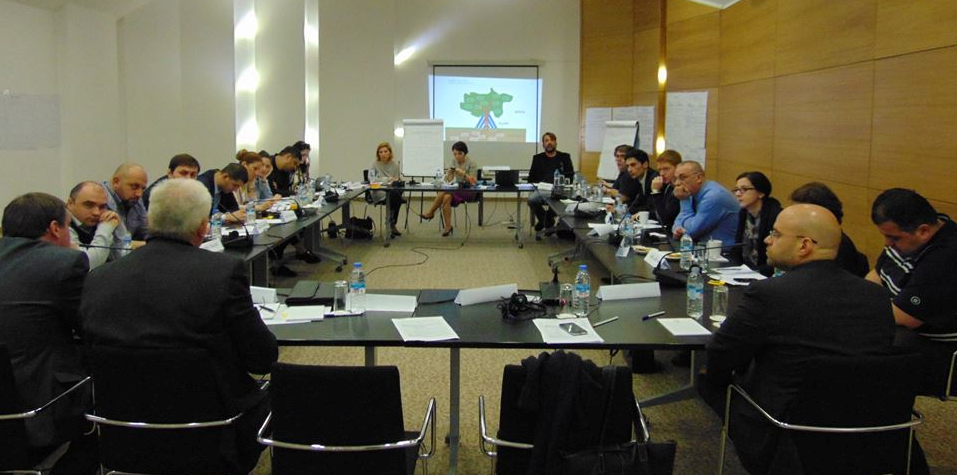Peace process architecture: Sharing experiences from Cyprus and Transdniestrian conflict settlement cases
CMI’s workshop brought together Georgian government officials to deepen their knowledge of peace process architecture and negotiations, and to learn from the negotiations on Cyprus and Transdniestria.
The workshop was held in Gudauri, Georgia, from 14-17 April 2016, and was the second round of peer support to Georgian government officials. This support is part of CMI’s programme supporting inter-agency peace process capacities ranging from conflict analysis exercises and techniques to peace process design, mediation strategies, and negotiation techniques.

The workshop was organised in co-operation with the International Centre for Geopolitical Studies (ICGS). The participants were members of various agencies in Georgia, including the Ministry for Foreign Affairs, the Ministry for Reconciliation and Civil Equality, the Ministry of Defence, the National Security Council, the State Security Service, and the State Security and Crisis Management Council.
Peace process design in theory and practice
The workshop combined theories of peace process design and practical knowledge through case studies of the Transdniestria settlement process and Cyprus. The participants gained an overview of peace process design theory. This overview highlighted the fact that a peace process is not just the formal negotiations, but also everything that happen before, after, and around them.
“A bad process can sink good negotiations.”
Participants reflected on and discussed key elements of peace process design, with particular emphasis on format, sequencing and participation. Specific exercises, including issue and format mapping and negotiation role play, were used. These exercises were based on the cases of the Transdniestria settlement process and Cyprus.


To illustrate and build on this theoretical grounding, invited experts Ambassador Vasile Sova, Vladimir Yastrebchak, and Ahmet Sozen gave the participants in-depth analyses of the current situation in Cyprus and regarding the Transdniestrian settlement process. The topics covered included analysis of the roots of the two conflicts, the matters currently at stake, the role of mediators, and the role of multi-track diplomacy. These and other themes were the subject of plenary discussions, group work, and simulations.
As one participant wisely noted on the lessons learned from the Transdniestrian settlement and Cyprus cases, “missed opportunities can also mean the start of a new process.”

Some of the group participants and ICGS and CMI staff in Gudauri.
The workshop was organised with funding support from the Ministry for Foreign Affairs of Finland as part of CMI’s programme partnership with the Ministry.